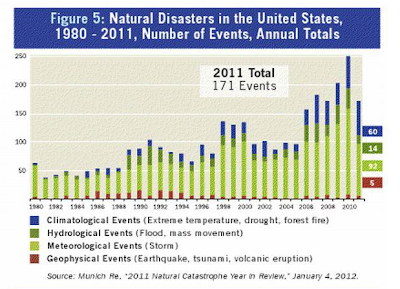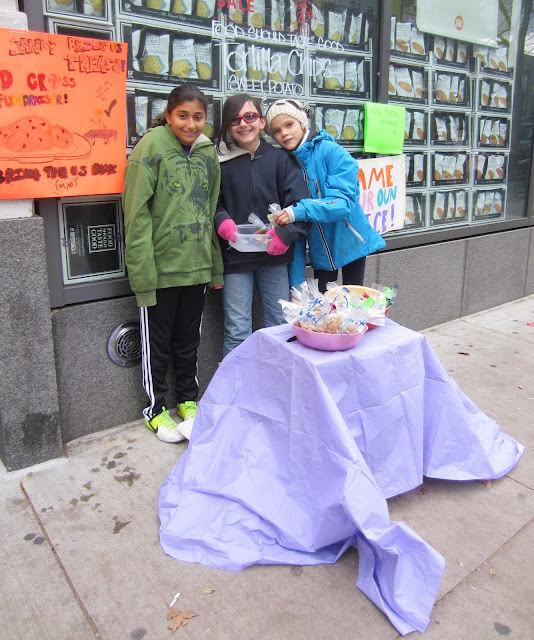At the risk of sounding didactic, judgmental and exhortative, I think the answer, as Darwin pointed out a while back, may be moral evolution, a community affair. Meanwhile, back at the ranch, it often gets pretty scary to face the present and future we've created with our meddling. Fish, the subject of much of this blog and my new project (Fish Story), are the tip of the iceberg, the underwater, invisible canaries in our mines and so on.
But those of us who care about these issues are less and less alone. We are building communities and those communities are talking to each other. I have been a founding member and participant in one of those groups, the ecoart dialog, which numbers over 100 members internationally. It is an invitational list but of course there are many other groups with open membership. Recently, we have been corresponding about how dire the global situation is, sharing articles and thinking and how to cope with the anxious feelings that arise. Those feelings include, but aren't limited to: anger, fear, despair, confusion and grief.
The following is an edited version of what I posted this morning about facing the environmental crisis clear-eyed, but not alone. I am posting it here, with the full names of some of our members, to continue to enlarge the community of ecological art practitioners and thinkers and those who are our support and audience:
Speaking for myself, I really appreciate what others, inc Amy Lipton and this from you, Jan van Boeckel, have shared to give us all strength to continue, while squarely facing the realities here. Speaking for myself, one of the great values of this dialog is the opportunity, reinforced when we can meet in person, as we did this past Tuesday, at Jackie Brookner's or at each other's events, at conferences, etc, so there's a continuity of relationship.
Speaking for myself, beyond abstract discussions, I need to know there's a caring, informed and experienced human heart on the other end of my dialogs with fear and anger. Not the same as therapy or even a partner.
Speaking for myself, it is all terrifying and enraging and yet, as Gene Turner quoted me as saying last year, human beings are very promising. We are smart creatures who can solve problems. And this is one h---- of a problem.
Recently, I inadvertently upset someone on the list, Linda Weintraub, when she realized I hadn't read her book before making comments about relativity and restoration. I do apologize for hurting anyone's feelings here on this list, inc Linda. I am passionate and some of that passion is fueled by intense frustration with the problems and the obstacles.
Thankfully, over the years, we have shared our values but have also overcome our disagreements because of a shared common, deep ecology ethic.
One of the issues that came up at Beverly Naidus's talk at Parsons last week, was the perennial one of urgency vs trying to bring the timid into the activist fold. As Beverly said Monday night, some people come in with a teaspoon. Most of us on this dialog come in with at least a shovel and sometimes, literally, an excavator.
These are things that personally scare me: that I won't have the stamina to continue (I still have chronic fatigue syndrome, I fear a recurrence of cancer or heart issues and all the potential economic issues around those problems), that even if I were superhuman, it wouldn't be enuf to forestall any of the coming disasters, let alone, the ones already upon us. I don't, curiously, fear being driven mad by the sheer scale of the problems. Perhaps, I am already over the edge.
These are the things I'm grateful for: that so many of us are reaching so many others, that so many of us share things (exhibitions, articles, essays, books, calls for conferences, etc), as Jan, everyone, has, that let me know or remind me how hard others are working on these problems, that we have genuine interest here in each other's work, a willingness to self-critique and honestly judge without meanness and are generally so often willing to share resources, ideas, opportunities that make it easier for us all to keep going.
This dialog began in 1998. As each of our careers have developed, it is remarkable how much we have clarified about our shared values, our common and divergent strategies, how much the field has expanded. It would be very interesting for someone to calculate, in fact, how many people we have collectively reached- if you add up all the conferences, students, exhibitions, articles, books, parties. Not inconsiderable.
You are all my teachers, as is everyone in my internet audience.
I am humbly grateful and fiercely proud: resilient adaptive evolution in practice here, I think.


















